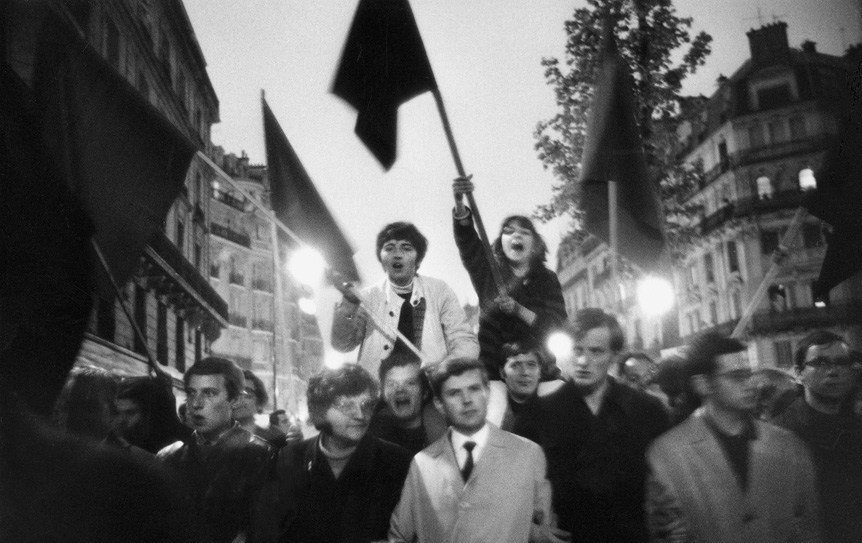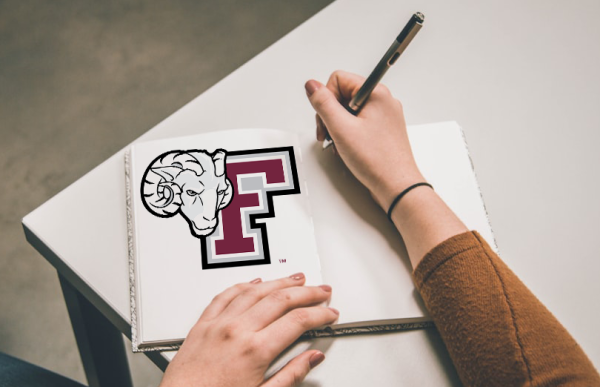Fordham Sophomore Researches Transgender History
Alexei Gannon, FCRH ’25, is a biology and history double major honors student. He has a passion and a penchant for melding the two disciplines together in his research. In the summer of 2022, he worked with his advisor, Mattie Armstrong-Price, Ph.D., to study the transgender history of the French revolt of May 1968. He was inspired to conduct this research within the context of the anti-trans legislation appearing in the United States today. “It felt especially important to emphasize the role that trans people — and especially trans women — have played in feminist movements,” said Gannon.
Gannon also stated that one of his motivations for this research was to respond to trans-exclusionary radical feminists (TERFs) who claim that trans women are not women but rather predatory towards women.
He hopes to show that trans women are historically strong supporters of women’s rights and have been key members of feminist movements throughout history.
Gannon was particularly interested in exploring the way this movement was tied together with a concurrent nation-wide labor strike in May 1968. At the time, colleges and universities saw a surge in student protest that manifested in marches, pamphlet production and unionization.
At the same time, the labor movement was advancing through France. Gannon wanted to explore the ways in which these two movements informed and built on each other. He studied publications, news articles and political pamphlets from the revolt, as well as reading interviews in the original French to gather primary source material.
While examining a robust body of sources, Gannon began to recognize patterns in activity that spanned across the two movements and could be seen echoed in protest movements today, with unionization being one key uniting factor.
He did not neglect the aftermath of the May ’68 revolt, when a series of separate feminist and queer groups emerged, including the Womens Liberation Movement, FHAR (a gay men’s revolutionary movement) and Gouines Rouges (a radical lesbian movement).
Gannon will present his research at the Undergraduate Research Symposium, but he emphasizes that the process is by no means finished. In the future, he hopes to conduct a psycho-geographic analysis. “The way that places were used [during the movement] was changed all the time,” said Gannon.
Universities were transformed into printing presses — hijacked by radical students to create propaganda to line the campus walls they were marching along and art to fill the streets with. Their slogan was “beauty is in the streets.” Theaters and businesses were occupied and turned into communes. Gannon said that his goal is to begin “to understand the role of place and the purpose of place in civil resistance movements.” This approach has implications for today’s movements as well, leading to the question of whether this repurposing of place is part of what civil resistance is.
Gannon is currently busy tapping into his scientific expertise by conducting research in Eduardo Gallo, Ph.D.,’s biology lab regarding the neurobiology of motivated behavior. “It’s basically taking care of a big colony of mice,” he said.
But he said he is helping to run experiments examining the role of dopamine and acetylcholine in the basal ganglia. The goal is that this research will provide insight into the behaviors corresponding to ADHD, schizophrenia, substance abuse and addiction.
Gannon said that his overarching research goals have not changed, however, he said he is still interested in the questions of how people think and how they come to be affected by the environment around them, whether he is reading French resistance texts or testing the effects of neurotransmitters. “Across disciplines, the fundamental question is still – how and why do people act,” said Gannon.
Gannon’s pursuits continue to extend from the laboratory to the classroom.












































































































































































































